Transcripts
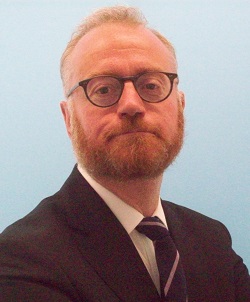 Please note this was transcribed to best of the ability of the transcriber and may have minor errors. Please refer to the podcast itself to clarify anything.
Please note this was transcribed to best of the ability of the transcriber and may have minor errors. Please refer to the podcast itself to clarify anything.
Erik: Joining me next on the program is financial historian and consultant to institutional investors, Russell Napier, and Russell, I’m so glad to get you on the program. I have long been a big admirer of your work, and I’ve really been looking forward to this interview. I want to start with a subject that’s near and dear to my heart, and I’m sure yours as well, which is the US dollar rally. I’ve been very bullish on the US dollar, I think structurally that this rally is set to continue, but boy, I woke up this morning and looked at the chart – it’s looking awfully ugly. So, did I get it wrong?
Russell: Well, indeed, today is not a good day to be a bull of the dollar, and obviously, there are political issues besetting the dollar exchange rate today. But the challenges for the other major exchanges of the currencies of the world are significantly bigger. A very quick run through the three major ones to show the scale of this: Number one, Japan is running out of savings, and by that, I mean it is insufficient private sector savings to fun its government at least in the domestic marketplace, at least in yen. The Central Bank has stepped in, it’s not doing counter devising, it’s effect will be doing outright financing of the government deficits that has always led to a decline in the exchange rate. It is fairly volatile at the minute, but I would expect a major, further decline copping the yield curve and using Central Bank money. Copping the yield curve effectively puts an unlimited scale of purchase on counter devising or an extension of counter devising, and therefore I think the yen has much further—not structural issues, not a cyclical issue, it’s not a political issue as we have with the dollar today that might pass as, at this point, as structural in nature with us for some considerable time; second, structural prolongs effects the Chinese currency, and that’s a very simple one. It has pursued a policy of mercantilism, managing its currency relative to the dollar and thus to other currencies that has been aimed at taking market shares in exports, but it has a defined and direct impact on monetary policies, and structurally it’s a policy which is unfit for purpose. You can’t be probably the second biggest economy in the world and hope to rely on a mercantilist monetary policy, so that exchange rate target will have to go. I think most people who would pine to the supply and demand in the next international exchanges for the Renminbi and say the lower band have abandoned, that means a lower renminbi; and finally, the Euro, people are getting a bit more optimistic at the moment. It seems the European project is back on course, but ultimately the monetary federal system in Europe, I believe, is still set for failure. We will not be able to create over here a federal system that is necessary to backup the euro, and therefore we have a short-term rally in the euro. But what ever problems America may have with the president or other political problems, these are passing problems, whereas there’s other problems that are far from passing, they’re structural in nature; and finally, there’s the amount of US dollar debt in the world borrowed cross-border. When we get an economical recession, take that economic recession associated with deflation and falling corporate cashflows, there’s usually a rush to pay it back debt. When people pay back debt and aggregate that net buyers of the dollar, so that overlays everything that happens in foreign exchange markets. It’s usually irrelevant for the United States dollar, but very occasionally as we saw in 2007 to 2008, you get one of these events, a deflationary event, where people rush to payback the debt, and it’s bullish for the dollar. So, I can talk for one hour on the dollar alone, but that is the brief summary of the forces that remain very positive for the United States dollar.
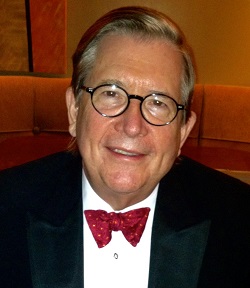 Please note this was transcribed to best of the ability of the transcriber and may have minor errors. Please refer to the podcast itself to clarify anything.
Please note this was transcribed to best of the ability of the transcriber and may have minor errors. Please refer to the podcast itself to clarify anything.
Erik: Joining me next on the program is Dr. Lacy Hunt, Chief Economist for the Wasatch-Hoisington Treasury Bond Fund.
Dr. Hunt, I’m so excited to get you in the program because we’ve had so many notable people calling for the end of the 35 year secular bull market in bonds, and a lot of guests we’ve had in the this program haven’t really wanted to take sides on this issue. I think you’re not going to have that problem because you have a very strong view. So, is the secular bull market in bonds really over? And if not, why not? And particularly, I know in the slide deck that you send us, there’s an excellent slide showing the velocity of money that’s been in freefall, not just since the great financial crisis, but really since the late 90’s. So, how does that play into the story, and how does it relate to your expectations for the continuance of this bond market?
Lacy: My view is that the secular low in long treasury bonds is not at hand- doesn’t mean that rates cannot go up, they have gone up quite a number of times since 1990 when this bull run started, but they’re not going to be able to stay up. The economy is too fundamentally weak.
The main consideration for believing that the trough is not at hand, is that nominal GDP growth and also the inflation rate is not yet at its secular low. There have been many transitory swings that will continue to be transitory swings, but the critical factors that determines the nominal GDP of both working lower experiencing considerably slower growth and money supply, and at the same time the velocity of money is in a major downtrend.
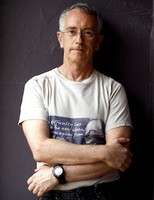 Please note this was transcribed to best of the ability of the transcriber and may have minor errors. Please refer to the podcast itself to clarify anything.
Please note this was transcribed to best of the ability of the transcriber and may have minor errors. Please refer to the podcast itself to clarify anything.
Erik: Joining me next on the program is Professor Steve Keen. Steve is of course Professor of Economics at Kingston University in London. Steve has also been probably one of the most prolific and popular guests that we have had on the program. So, if you enjoy today’s interview, I strongly recommend that you go back, Steve has been I think either two or three times on the program before and those interviews are as relevant today as they were when they were recorded. So, Steve I think we should start with the French elections because that’s been on everybody’s mind and you certainly are in the right neck of the woods to cover that. How do you see both the situation with the first election going the way that it did and probably more importantly in terms of the follow-on, how does this frame the overall picture of European contagion risk, you know, are we still looking at Brexit having been the beginning of the end for the EU or would a Macron victory maybe suggest that things are coming back together?
Steve: No, I think Macron is just a continuation of Hollande by another name and somebody who actually supports the Neo-liberal economic policies rather than being forced to do them, this saline was done by the European Union and its Maastricht treaty rules. So, whatever, because the issues are still there with the Euro, hobbling France over the policies and limitations on government deficits, the attempt to cut spending with austerity and so on and every, when you attempt to save, the very dollar you save is actually a dollar less in GDP because dollar less expenditure is a dollar less income, so it’s totally counterproductive policies because Macron is likely to follow those policies and actually enhance them with his ideas to sack large numbers of public servants and try to balance the budget even faster, he will simply amplify the support for Le Pen at the next election if she loses the runoff election and because that’s still not necessarily a given because even if the polls called this election very accurately, the next one depends upon who turns up to vote for their less unpopular candidate and they only if Le Pen is guaranteed to have her full support continued, there is no necessary guarantee that Macron is going to pull support either from the centre-right or the centre to extreme left and he needs to do that to beat Le Pen in the next round, so but if he doesn’t, she will be back in five years’ time stronger than ever.
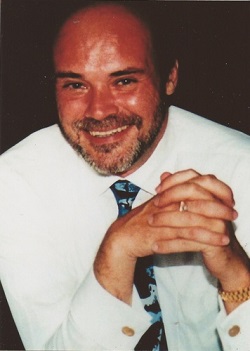 Please note this was transcribed to best of the ability of the transcriber and may have minor errors. Please refer to the podcast itself to clarify anything.
Please note this was transcribed to best of the ability of the transcriber and may have minor errors. Please refer to the podcast itself to clarify anything.
Erik: Joining me next on the program is Martin Armstrong from Armstrong Economics and Martin thanks so much for coming on the program, I'm particularly interested to get your views on equities because we've had so many bearish guests, we've been looking for someone with a well-considered and intelligent bull view to counter that.
But before we go there why don't we start with the U.S. dollar because I think that some of the international capital interactions are going to play into your equity view. So, what do you see in the U.S. dollar? Some people are saying it's rolling over, the rally is done, other people are saying it's just taking a pause.
Martin: Now it's just basically in a temporary pause right now because of the French elections, actually you have people that are just diehard pessimists and you have other people that are optimists and. In the case of the euro the optimists, it's more like-- I used to have an old professor who explained the difference between the two, he says they're on top of the World Trade Center and a good wind blows them off, he says pessimist immediately starts praying, the optimist says he’s passing the four fourth floors well so far so good.
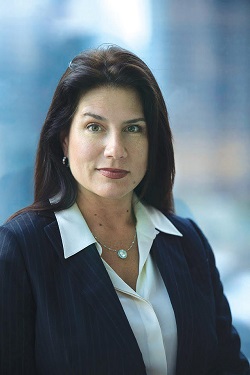 Please note this was transcribed to best of the ability of the transcriber and may have minor errors. Please refer to the podcast itself to clarify anything.
Please note this was transcribed to best of the ability of the transcriber and may have minor errors. Please refer to the podcast itself to clarify anything.
Erik: Joining me next on the program is noted author Danielle DiMartino Booth who wrote of course the book Fed Up which has gotten a lot of attention recently. Danielle, I read your book cover to cover this weekend and I'm really glad that I did because frankly it's not about what I thought it was going to be about and I found it much more interesting than I expected. I want to come back to that later but I just want to share with you, reading the book just kept reminding me of this movie that I saw years and years ago it was a documentary about the space shuttle Challenger disaster and of course NASA’s party line was this was unforeseeable it was just a horrible unforeseeable terrible disaster.
As it turns out there was actually an engineer who at every turn was trying to warn people saying look there was badly scorched solid rocket boosters, there was blow by past the O-rings that clearly indicates that we have a flight risk problem, we need to do something, there was just one problem, this wasn't one of NASA’s Ph. D. scientists, this guy only had a master's degree he was a lowly engineer and they would not take him seriously.
Danielle, you are that guy, but twenty years later at the Fed and it's not O-rings things this time, its housing crisis and it's amazing it was amazing to me reading the book.
MACRO VOICES is presented for informational and entertainment purposes only. The information presented in MACRO VOICES should NOT be construed as investment advice. Always consult a licensed investment professional before making important investment decisions. The opinions expressed on MACRO VOICES are those of the participants. MACRO VOICES, its producers, and hosts Erik Townsend and Patrick Ceresna shall NOT be liable for losses resulting from investment decisions based on information or viewpoints presented on MACRO VOICES.
